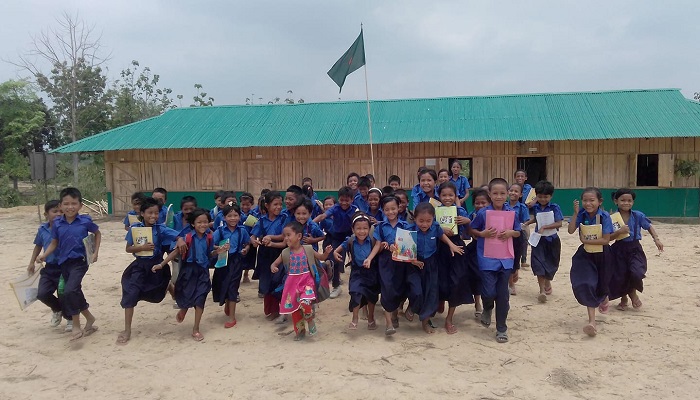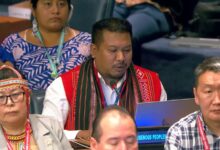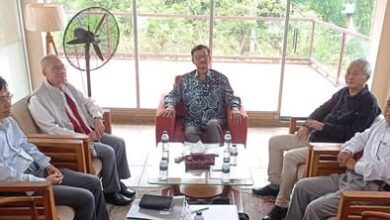Mother-tounge based Primary Education in CHT: How is it going?

Satej Chakma,IPNEWS BD: The first stage of the education system is primary education. This stage affects the development of every child. If the structure of primary education is not strong, many obstacles arise in children’s education at a higher level. In many cases, children drop out. This dropout rate is higher for children in remote indigenous inhabited areas in the Chittagong Hill Tracts (CHT). Among the 64 districts of Bangladesh, the primary education sector in three hill districts (Rangamati, Khagrachari, and Bandarban) is under the control of three hill distric councils. According to the Chittagong Hill Tracts Peace Accord of 1997, many complaints of unfairness in the appointment of teachers in primary education system running under these three district councils are heard in the remote areas of the hills. Reluctant to disclose his name, a senior teacher working in a primary school in Baghaichhari Upazila of Rangamati district expressed his own opinion that most of the teachers employed by the district council are inept and incompetent. As a result, the other teachers of the school have to go through hardships in order to cooperate with these appointed teachers. The teacher also stated that students are being deprived of learning from skilled and qualified teachers.
The government has introduced primary education in the mother tongue of five indigenous languages (Chakma, Marma, Kakbarak, Garo, and Sadri) since 2017. When asked how primary education is going on in these mother languages, Rajshree Chakma, a teacher of Katarkhaiya Government Primary School situated at the Banyogichhara Union of Jurachhari Upazila, said that indigenous teachers of the respective languages are given a 14-day training on their respective languages. Achieving the written system of a language in 14 days is a very difficult task. She spoke about the need to expand the training program to make the education gained through this training more sustainable.
Another teacher who also reluctant to dosclose his name said that although the number of teachers in our school is fixed at 5, it is running with only 3, which is insufficient compared to the requirement. He said that the remaining two are working at other schools on deputation. However, when asked about this matter, Iti Chakma, a teacher working at Kachalong Model Government Primary School, located in the Sadar area of Baghaichhari Upazila, said that there are 12 teachers in our school. She also said that eighty percent of the more than 200 students in this school belong to the mainstream Bengali community. The rest are students from Chakma, Tripura, Rakhine, and other communities, he said.
When asked about the reality of primary education in the mother tongue, an assistant teacher of Nalbania Government Primary School in Rangamati Baghaichhari Upazila, Bhagyaban Chakma, said that primary education in the mother tongue has not been fully completed yet. Books are provided in the mother tongue only up to the third grade. And these books are not that complete.
When contacted with many public representatives of hills in remote areas, it is known that many teachers in remote areas still do not go to school regularly. Due to the lack of proper monitoring, these teachers are running the school with the help of less educated locals. This information also emerged in the direct conversation of this reporter with the President of the Managing Committee of Battali Maun Government Primary School of Bilaichhari Upazila of Rangamati. Talking to Ramel Tanchangya, a student studying higher education in Dhaka from the Battali Maun area said, “the teachers in charge of their school do not attend to school regularly.”
Lakshijoy Tanchangya, a local college going student, along with some of his friends, have been teaching the students of their locality. They said, `the respected teachers of our school are not responsible enough. Most often they don’t attend to the school timely. Feeling the reality we have taken the responsibility to teach our youngers.”
At the end of last year (2019), this reporter had the opportunity to go to the Chota Madak area of Thanchi Upazila in Bandarban district. The Tripura dominated villages in the said area still do not have any government primary schools under government management. Talking to the Tripura people of Kyasapru Para, Kamong Hadman Para and Rangsola Para, It’s learned that the primary schools there were all built with the help of Christian missionaries. The students of the remote hills are taught by some less educated locals.
Dr. Saurav Shikder, prominent indigenous language researcher and professor of the linguistic department of the University of Dhaka visited “Hamachang Private Primary School” in the Hamachang Tripura neighborhood of Sadar Upazila of Khagrachari district a few days ago. When contacted to share his first-hand experience on the primary education system in his mother tongue, he said, “the schools have students, advanced infrastructure, and books. But what is missing are trained teachers.”
Dr. Shikder also said, “A new type of problem has arisen in implementing the primary education system in the mother tongue. One of those problems is the lack of teacher training center. Besides, lake of trainers also. I see those who teach these things also do not have proper knowledge to train others. So the main issue behind this is the corrupted education system of the district councils, lack of proper monitoring, and negligence of the responsible officials. As a result, many indigenous students in the hills are dropping out of school. Therefore, it is necessary for the concerned authorities to be more proactive to make primary education in the hills more sustainable.”



